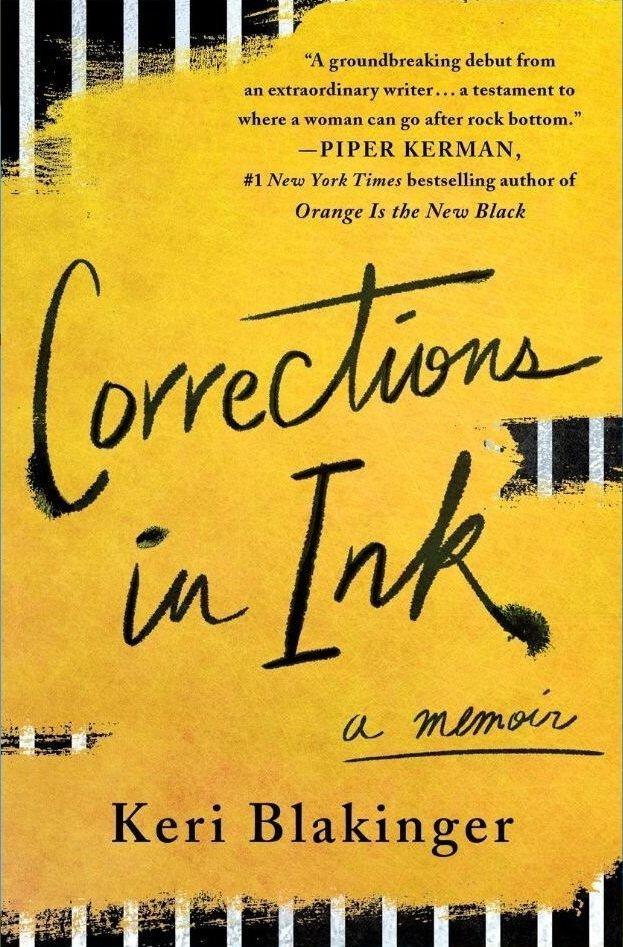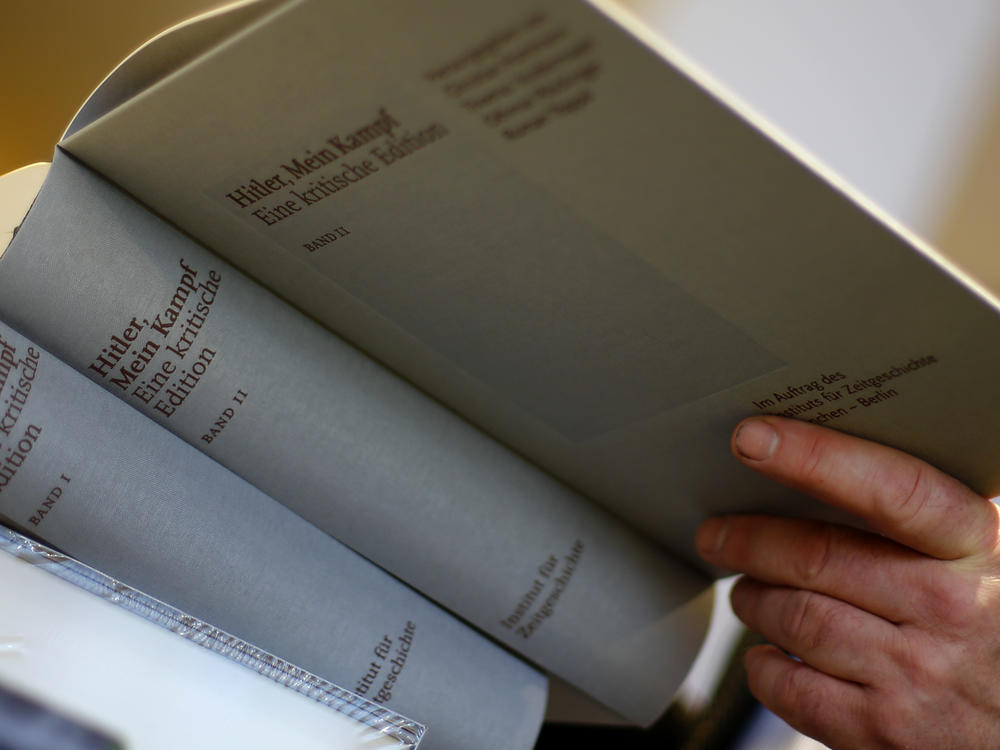Section Branding
Header Content
A reporter's memoir of her jail time gets banned in Florida prisons
Primary Content
When an author's book gets banned or confiscated, one might imagine that the writer might be frustrated, or even angry.
But when Keri Blakinger received word that the Florida state prison system placed her book, Corrections in Ink, on a temporary ban, she tweeted, "Honestly, I AM SO PROUD."
Blakinger, who is a journalist covering prisons for The Marshall Project, was really responding tongue-in-cheek — an ironic response to a truly head-scratching situation.
"It's kind of hilarious that the prison system — now that I am rehabilitated and doing good things in the world — says that my writing is dangerously inflammatory," she told NPR. "I also think it's absurd that one of the reasons for the ban was that the book presents 'a threat to the security, order or rehabilitative objectives of the correctional system.' The book is literally a story about rehabilitation."
Blakinger was notified about the ban by The Prison Book Program, a nonprofit group that had attempted to send a copy of her memoir to an inmate. The book was instead impounded, meaning that until the Florida Department of Corrections' Literature Review Committee approves of the book, it's banned from every state-run carceral facility.
The department told NPR that Corrections in Ink is currently under review by the committee, which will determine if "it contains subject matter that is inadmissible per Florida Administrative Code." Under the policy, the book's publisher is afforded the opportunity to appeal the decision.
"The next meeting will be held in coming weeks, so it is too soon to provide a determination for the publication," the spokesman said.
State-level prisons' banned book lists raise questions
Coincidentally, as part of Blakinger's work with The Marshall Project, she's recently submitted records requests for state-level prisons' banned book lists.
She's found that some state prisons ban books on a case-by-case basis. Others have a set list of forbidden books.
"How big those lists are and what sorts of materials they include varies quite a bit," she said.
Some states have very small lists, with only a few hundred titles. Other states, like Florida, Texas, Michigan and California, have lists with thousands of titles on them. And the ones chosen often don't make a ton of sense, Blakinger said.
"Texas has banned The Color Purple. Michigan bans Dungeons and Dragons books," she said, referring to the famous tabletop fantasy roleplaying game.
Michigan has also banned dictionaries in Spanish and Swahili under claims that the books' contents are a threat to the state's penitentiaries. Prison officials said they feared inmates would learn an "obscure language" and organize against staff.
There are some books that are banned for security reasons, and for good reason, Blakinger notes.
"Maybe you don't want books that teach bomb making. Admittedly, if somebody's getting the materials for a bomb, you probably have a much bigger security issue than the book," she said.
Oddly enough, Blakinger has found books championing extremism and white supremacy like The Turner Diaries and Adolf Hitler's Mein Kampf are rarely prohibited in prison.
Blakinger provided NPR with a list of other banned books within the Florida prison system that she received through a records request. It appears that, for now, her memoir is prohibited alongside porn and books on the Japanese language, yoga and fantasy football.
"[Florida has] one of the largest banned books lists of all the states with lists that I've reviewed. They're the 1st I'm aware of to flag mine," she said on Twitter. "And while I am not happy it is impounded, impoundment for being 'dangerously inflammatory' is pretty dope. But the idea it poses a threat to security or to the 'rehabilitative' goals of prison is LAUGHABLE... my book is more rehabilitative than Florida prisons have ever been."
Copyright 2022 NPR. To see more, visit https://www.npr.org.



